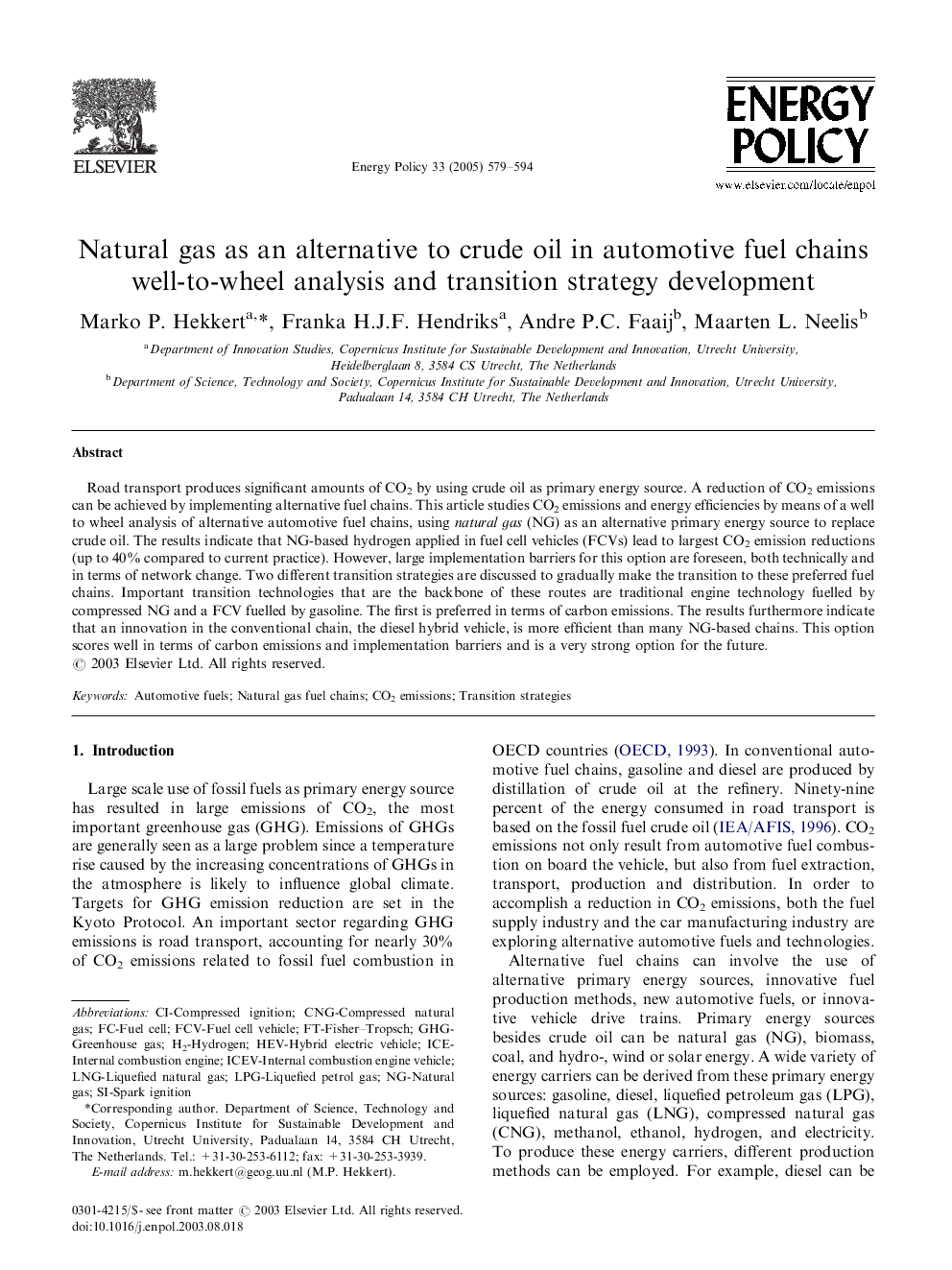| Article ID | Journal | Published Year | Pages | File Type |
|---|---|---|---|---|
| 10487734 | Energy Policy | 2005 | 16 Pages |
Abstract
Road transport produces significant amounts of CO2 by using crude oil as primary energy source. A reduction of CO2 emissions can be achieved by implementing alternative fuel chains. This article studies CO2 emissions and energy efficiencies by means of a well to wheel analysis of alternative automotive fuel chains, using natural gas (NG) as an alternative primary energy source to replace crude oil. The results indicate that NG-based hydrogen applied in fuel cell vehicles (FCVs) lead to largest CO2 emission reductions (up to 40% compared to current practice). However, large implementation barriers for this option are foreseen, both technically and in terms of network change. Two different transition strategies are discussed to gradually make the transition to these preferred fuel chains. Important transition technologies that are the backbone of these routes are traditional engine technology fuelled by compressed NG and a FCV fuelled by gasoline. The first is preferred in terms of carbon emissions. The results furthermore indicate that an innovation in the conventional chain, the diesel hybrid vehicle, is more efficient than many NG-based chains. This option scores well in terms of carbon emissions and implementation barriers and is a very strong option for the future.
Related Topics
Physical Sciences and Engineering
Energy
Energy Engineering and Power Technology
Authors
Marko P. Hekkert, Franka H.J.F. Hendriks, Andre P.C. Faaij, Maarten L. Neelis,
